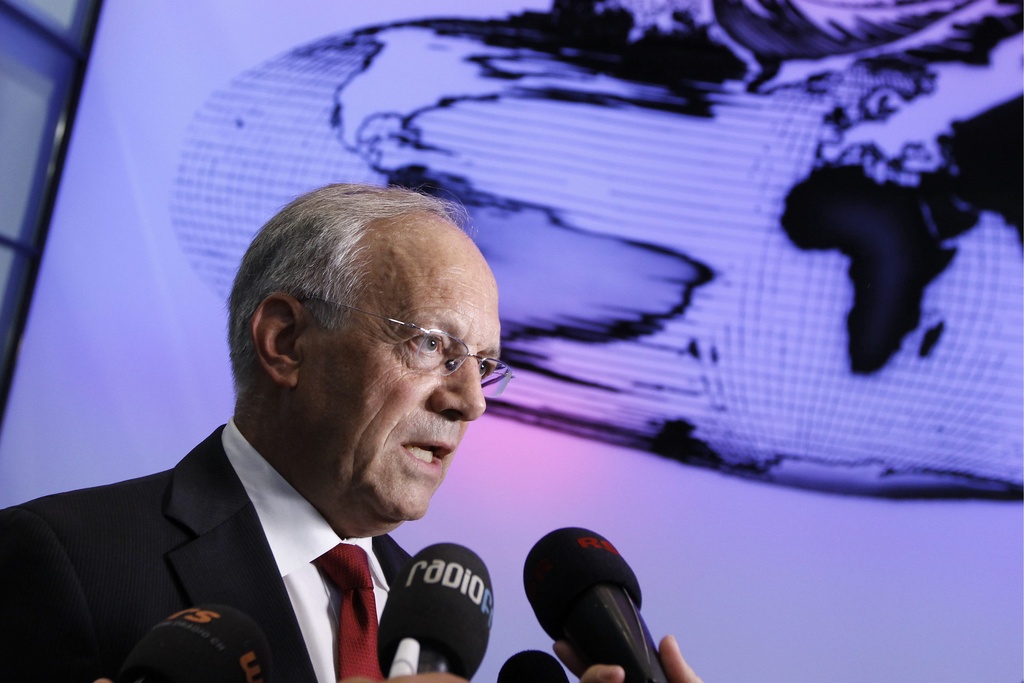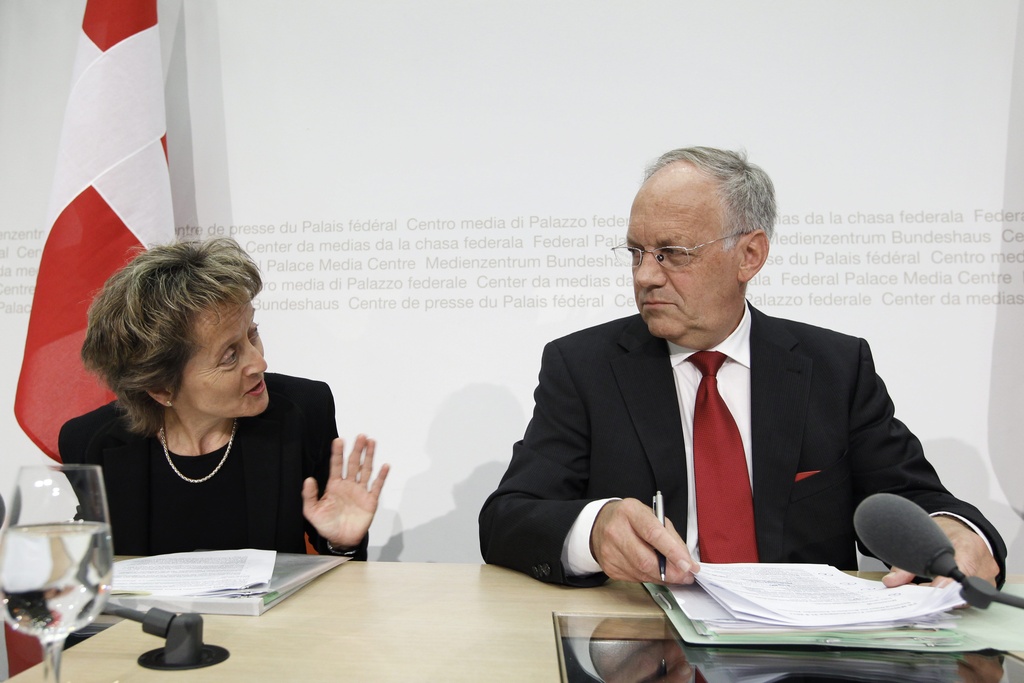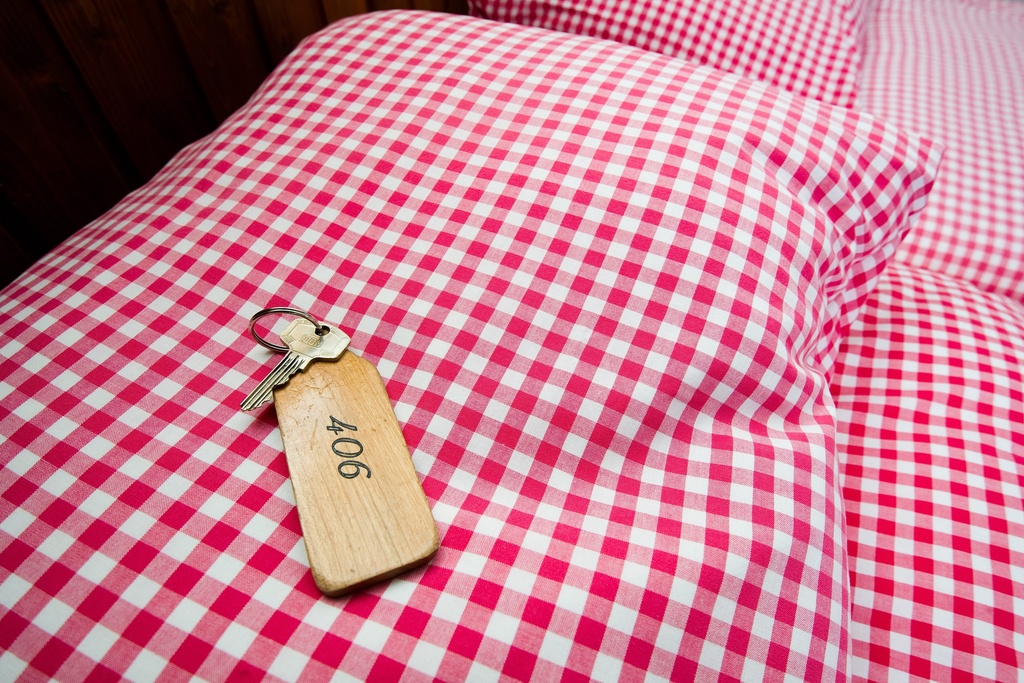Plans to boost the economy get green light

Parliament has approved a controversial package of financial measures to counter the impact of the strong Swiss franc on the economy.
Following the Senate, the House of Representatives voted on Wednesday to accept the plan to inject SFr870 million ($975 million) into the economy in exactly the form presented by the government.
Voting was 102 to 48 after about seven hours of debate spread over two days.
The package faces one more hurdle on September 30, when the two houses will be asked to confirm their decision. As long as they do not change their minds, the money could be released the next day.
The largest chunk of the package – SFr500 million, which may not all be used – will go to supplement the state unemployment insurance plan. Most will be used to subsidise the wages of workers who have had their hours and pay compulsorily reduced.
Another SFr212.5 million will be targeted at a research and innovation programme, helping to translate ideas into successful business plans.
A further SFr100 million will go to the Swiss Hotel Loan Company, an official organisation which grants credit on advantageous terms to hotels, and transport businesses in tourist areas will also be supported. Tourism has been hit as the strong franc has made holidays in Switzerland more expensive to foreigners.
Conflicting ideas
Although different factions attempted to get details of the package changed, none were able to get their alternatives through.
Among the ideas put forward by the centre-left Social Democrats and the Greens were a tightening of the law on cartels to combat the high cost of living, a strengthening of the powers of the price watchdog and a ban on paying wages in euros.
The Social Democrats also wanted to set up a SFr1.2 billion fund to help export businesses and they called for backing for renewable energies.
The rightwing People’s Party wanted to replace a number of the government’s proposals with reductions in the rate of value added tax. Its call to cut the standard rate from eight to 7.5 per cent and for a rate of 2.5 per cent for the hotel industry, was rejected by the other parties. Such reductions would have cost more than two billion francs.
In the event, only the People’s Party and the Green Liberals voted against the package, describing it as a “gift for the elections” rather than a support plan for the economy.
The other centre-right parties, who had previously expressed misgivings, voted in favour.
Need for speed
The Employees Switzerland association, which groups associations of employees in some of Switzerland’s leading export branches – engineering, electrical and metal industries, chemicals and pharmaceuticals – reacted to the vote by calling for a speedy implementation of the measures, while also asking the government to make more money available.
“The worsening forecasts could soon make this necessary,” it warned in a statement on its website.
On Tuesday the State Secretariat for Economic Affairs (Seco) revised its GDP growth forecast for 2011 downwards from 2.1 per cent to 1.9 per cent.
Strong franc still a problem
In August, the government had proposed a SFr2 billion package to boost to the economy, but following widespread criticism decided three weeks ago to present the SFr870 million as a first instalment to parliament.
The original plan had been criticised by other politicians and business leaders who feared it could distort competition by directly subsidising some enterprises.
The money is to be taken from an expected 2011 budget surplus.
The cabinet has said it will present a second package of measures to parliament in December if the economy is still suffering under the effects of the strong franc, which at its highest on August 11 was SFr1.04 to the euro. A year previously it would have cost SFr1.38 to buy a euro.
The Swiss National Bank intervened two weeks ago setting a minimum exchange rate target of SFr1.20 to the euro.
Economist Ernst Baltensperger, a consultant at the bank’s own Gerzensee Study Centre told the Tages-Anzeiger newspaper on Wednesday that the bank might raise the peg to 1.25. He said he didn’t know any expert who did not consider the franc over-valued at 1.20.
Not everything went the way the government wanted on Wednesday. Finance Minister Eveline Widmer-Schlumpf failed to persuade the majority not to vote for a motion calling for a new recovery plan based on a reduction of corporate tax.
The minister, who was supported only by the centre-left parties, said tax policy should not be shaped by the current monetary situation.
SFr500 million of the SFr870 million ($975 billion) goes to protecting jobs in all industry sectors.
SFr100 million goes to a fund that can extend emergency loans to the hotel industry.
Also benefitting: a state technology and innovation programme, the two Federal Institutes of Technology, some public transport projects and specific agricultural exports.
The bailout plan is aimed at countering the negative effects of the rapidly strengthening franc.
The original SFr2 billion plan of mid-August was criticised over fears it could be used to distort competition by bailing out specific sectors.
The Swiss franc is a so-called “safe haven” currency, that means that investors and speculators buy it when other currencies, including the euro and the dollar, are under pressure.
The increasing value of the Swiss franc is a source of great frustration for exporters because their goods are more expensive to sell outside Switzerland, particularly in the euro zone.
At its highest on August 11 it cost around SFr1.04 to buy a euro. A year previously, it would have cost SFr1.38.
When the euro entered circulation on January 1, 2002, it cost SFr1.47; at its highest, in October 2007 it cost 1.67.
On September 21 it cost 1.22.

In compliance with the JTI standards
More: SWI swissinfo.ch certified by the Journalism Trust Initiative













You can find an overview of ongoing debates with our journalists here . Please join us!
If you want to start a conversation about a topic raised in this article or want to report factual errors, email us at english@swissinfo.ch.